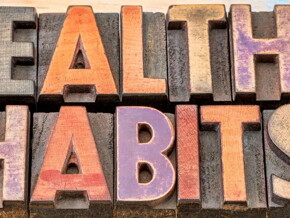
3 Growth Nutrients that You Need to Know
We all know that children need different nutrients to grow and develop. Each one is important pero alam ninyo ba na ang top three growth nutrients ay carbohydrates, fats, and protein?
Carbohydrates are our body’s main source of energy. When broken down during digestion, they become simple sugars which our body uses for energy. Good sources of carbohydrates include rice, pandesal, cereals, beans, and vegetables like potatoes and corn. Fruit and milk are good sources of natural sugars which the body can easily use also.
Fats, tulad ng carbohydrates, also provide energy. Fats are also needed to help the body absorb vitamins A, D, E, and K. Good sources of healthy fats are red meat, butter and margarine. Many snacks, creamers and whipped cream also contain fats.
Protein is the basic building block of the body. It is probably the most important nutrient when it comes to the body’s development. We need protein to repair our body’s cells and make new ones. Good sources of protein are fish, meat, milk, cheese, and yogurt. We can also get them from plant sources like beans, munggo and tokwa.
All these major nutrients are needed by the body. However, kids should only receive what’s enough to support their growth rate and development. Otherwise, giving too much of these nutrients can cause health problems.
Look around you --- these past years, the number of overweight children has been increasing. One reason for this is feeding them food that is loaded with unhealthy fats, carbohydrates, and calories. Recent research studies also show that giving high amounts of protein during infancy may cause an increase in body fat, faster weight gain and obesity.
As a parent, you do not want your kid to be obese, ‘di ba? Kaya, teach your little one good eating habits while he is still young. Feed him nutritious, natural foods that have the recommended daily amount of carbohydrates, fat, and protein. Encourage your child to get up and go for sweaty physical activities everyday instead of just sitting in front of the TV or computer all day long.
REFERENCES:
WedMD Medical Reference. Carbohydrates & Foods Containing Carbs. Available at: http://www.webmd.com/diet/carbohydrate-foods-topic-overview. [Accessed 30 June 2015]
US National Library of Medicine. Carbohydrates. Available at: http://www.nlm.nih.gov/medlineplus/ency/article/002469.htm. [Accessed 30 June 2015]
US National Library of Medicine. Protein in diet. http://www.nlm.nih.gov/medlineplus/ency/article/002467.htm. [Accessed 30 June 2015]
WedMD Medical Reference. Types of fat – topic overview. Available at: http://www.webmd.com/food-recipes/types-of-fats-topic-overview. [Accessed 30 June 2015]
Kliegman, et al (ed.). 2008. Nelson Textbook of Pediatrics, 18th ed. Philadelphia: Elsevier




























